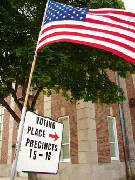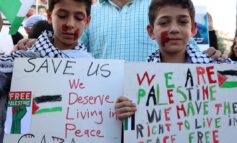It’s hard times for Arab American candidates for public office in Dearborn. From the incumbents to the first-timers, they have found it next to impossible to break through the stigma and hesitation that many of the city’s majority-white electorate have displayed in historical voting patterns. Thus, they greatly underperform amongst the seniors in absentee voting and the largely non-Arab areas of West Dearborn.
Every election cycle, a well-intentioned, qualified Arab American candidate takes to the streets with passion and commitment to serve and asks the broader Dearborn community to consider them. Then, despite giving everything they can and outworking the competition, they come up short — disappointed not only by an unfriendly older, whiter voter base, but also an Arab community that is largely lazy and apathetic in the American political arena. The unfortunate results breed distrust, discontent and a general negativity toward local campaigns and elections in a community with an otherwise huge political potential.
So why can’t good, qualified Arab American candidates for office rely on the large, nationalistic Arab American population to put them over the top in vote totals on election day? The truth is that despite Dearborn’s Arab American population pushing 40% of the entire city, Arab Americans only make up about 18,000 of the city’s total 59,000 registered voters. To compound that underrepresentation on the voter rolls, Arab Americans have consistently voted at only half the rate of the non-Arab voters in Dearborn.
Four years ago, it was estimated that only 5-7% of the Arab American voters turned out to vote in a primary election in which the only unsuccessful city council candidate out of 15 was an Arab American who received less than 900 votes. The candidate was a young, U.S. veteran who spent lots of time and money on the campaign. By contrast, first-time non-Arab candidates who didn’t spend a fraction of the resources on their campaign, doubled his vote totals. The total turnout for the city’s voters for that election stood at more than double the Arab turnout.
This year, cognizant of the negative effects of a dismal Arab American turnout, the Arab American candidates worked the neighborhoods, registering hundreds of voters, sending volunteers door to door and calling Arab American voters several times to urge them to participate. Although there were signs of improvement, the community must take voting more seriously before our candidates can truly succeed and represent our interests. My analysis shows that there were between 1,600 and 2,000 Arab American voters who turned out on Tuesday, less than 12% of the registered Arab American voters. The city-wide turnout rate was 18%.
Time and again, our excuses have outnumbered our votes. It takes literally five minutes to vote for city council. Although some of the community members were overseas, over 90% were home and most decided not to vote. When our organizations and candidates do an excellent job distributing flyers, signs and phone messages to remind our community to vote, ignorance about the election date and location are not valid excuses.
I have a hunch that our people feel powerless to change the situation around them. Hope is key. Years of despair over American foreign policy, unsuccessful local candidates and local and international stigmatization of our people have taken a toll on morale. We need leadership now. We need new, energetic and hopeful leadership. We need to reignite the collective thinking that can make our community great. The numbers, the talent and the resources are there. Our institutions must take on the collective responsibility of engaging in the political arena for the betterment of the community. Voting must become a regular practice for everyone. The 65 year old “hajji” and the 19 year old “wallah bro” must take those few minutes every August and November to do their duty for our community.
The author is the membership committee director of AAPAC. Community members interested in volunteering their time or resources for a voter mobilization effort may contact Tarek M. Baydoun by email at tbaydoun@gmail.com or phone at 313.729.3737.






Leave a Reply